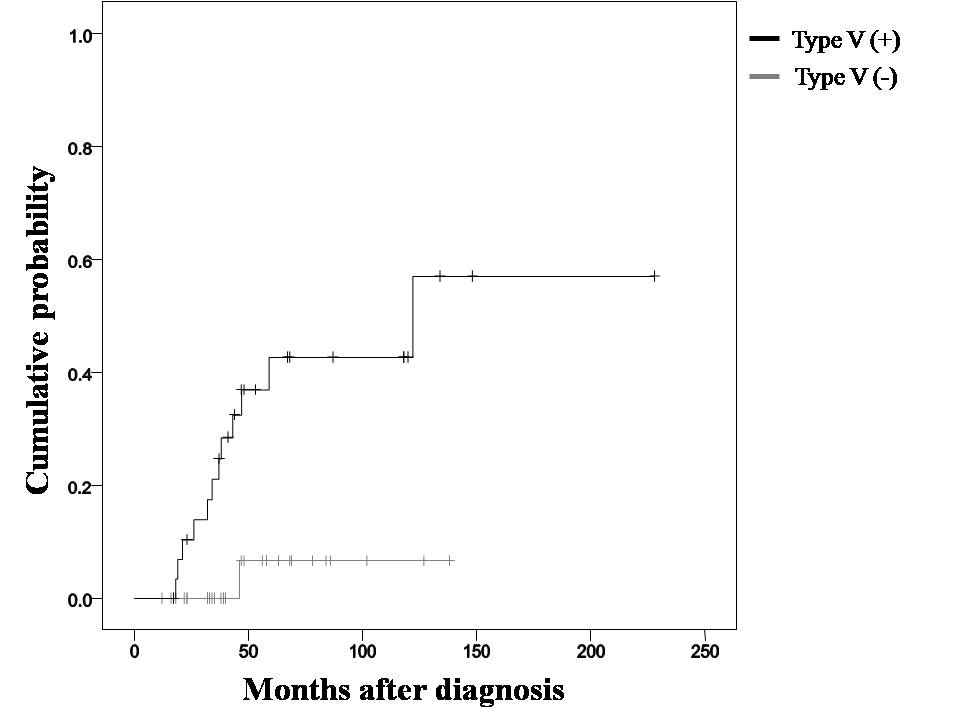Prognosis of Clinically Inactive Takayasu’s Arteritis
Background/Purpose:
Takayasu’s arteritis (TA) is a chronic inflammatory vasculitis, and immunosuppressants including glucocorticoids are generally required for treatment. Although, some portions of patients with TA have no evidence of active disease at the time of diagnosis, but the prognosis has not been reported. Therefore, aim of our study is to investigate the outcome and to identify the predictors of activation of clinically inactive TA.
Methods:
We reviewed data of patients who was diagnosed with TA according to the 1990 ACR classification criteria between January 1990 and December 2012 at the Asan Medical Center. Patients were classified as an inactive disease at the time of diagnosis, based on the NIH definition of active disease in TA. During follow-up, activation of TA was defined based on acquisition of criteria for active disease. The pattern of vascular involvement was classified according to the International Conference on TA in Tokyo, 1994.
Results:
Total 199 TA patients were identified, and 59 (29.6%) patients were classified as inactive disease at the time of diagnosis. The mean age of 59 patients was 42.9 ± 12.9 years and 50 (84.7%) patients were female. The median follow-up duration was 58 months (IQR, 37.0-107.0). During follow-up, 13 (22.0%) patients experienced disease activation of TA with median 37.0 months (IQR, 23.5-46.5) after the diagnosis of TA (activation group). On the other hand, remaining 46 (78.0%) patients did not experience the activation (stable group). There were no significant differences in baseline clinical characteristics and laboratory findings between activation group and stable group. The presence of renovascular hypertension, however, was more commonly observed in activation group than in stable group (4/13, 38.5% vs. 4/46, 8.7%, p=0.019). Further, type V, which is the most extensive type in involved pattern, was found more frequently in activation group (12/13, 92.3%) than in stable group (18/46, 39.1%. p=0.008). In a multivariate analysis, involvement of type V (OR=10.969, 1.144-105.182, p=0.038) was significantly associated with increased risk for disease activation in clinically inactive TA. In addition, the cumulative probability of activation was significantly higher in TA patients with type V than those without type V by Kaplan–Meier analysis (p=0.002) (Figure 1).
Conclusion:
In the present study, substantial portions of patients with clinically inactive TA at diagnosis experienced an activation of disease during long-term follow-up. We suggested that the type V angiographic pattern can be used as an important predictor for disease activation.
Figure 1. Cumulative probability of activation in patients with clinically inactiva TA
Disclosure:
S. H. Bae,
None;
S. Hong,
None;
S. M. Ahn,
None;
D. H. Lim,
None;
Y. G. Kim,
None;
C. K. Lee,
None;
B. Yoo,
None.
« Back to 2014 ACR/ARHP Annual Meeting
ACR Meeting Abstracts - https://acrabstracts.org/abstract/prognosis-of-clinically-inactive-takayasus-arteritis/

